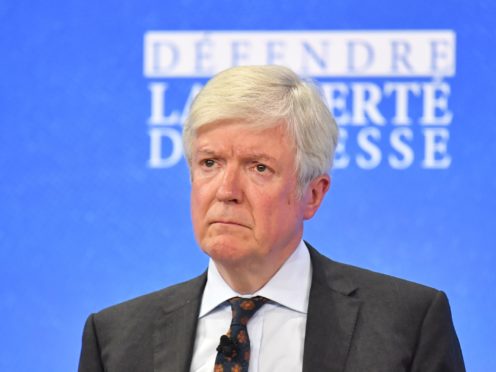Lord Tony Hall has said the television industry is about to enter “a second wave of disruption” because of new entrants in the streaming market.
The BBC director-general said the main impact of newcomers such as Disney and Apple could be on established services such as Amazon and Netflix.
He said: “Our industry is about to enter a second wave of disruption.
“The first was about the rise of Netflix, Amazon and Spotify: market shapers that fundamentally changed audience behaviour, often at the cost of huge losses or massive cross-subsidy.
“The second wave will see a range of new entrants entering an already crowded market. We saw it last week as Apple announced their new subscription service. Disney, Hulu and others are to follow.
“This is, of course, great for audiences. Possibly.”
He added that the libraries of Amazon and Netflix are “likely to shrink, as programme-makers pull their content away from these services to place them on their own”.
“The established streamers will need to fight harder to offer the value they currently give today.”
Speaking at the Royal Television Society convention in Cambridge, Lord Hall will argue that rather than being a threat, this “second wave of disruption” is an opportunity for the BBC to offer an even better service to the public.
Saying that services like iPlayer and BBC Sounds are growing at a rapid rate, he will say the BBC will add a host of new features to iPlayer.
“In this market, services that are distinctive and different will stand out,” he said.
“And two vital things make us different. Firstly, we have a unique mission and purpose, all audiences – young and old – believe in it.
“Purpose and values matter today more than ever, as people pick and choose services for ethical reasons as much as economic ones.
“Secondly, no one offers the range of content, in so many genres, on so many platforms, as the BBC.
“We’re not Netflix, we’re not Spotify. We’re not Apple News. We’re so much more than all of them put together.”
Answering commentators who have argued that the BBC can only lose ground with the young, Lord Hall will discuss how services like BBC iPlayer and BBC Sounds are starting to turn the tide.
The #RTSCambridge Convention 2019 starts next week. The full programme is now available to read https://t.co/5lPYkkmIzv pic.twitter.com/UVuDo2CsWE
— Royal Television Society (@RTS_media) September 15, 2019
“In the space of a year iPlayer’s reach to young audiences is up by a third,” he said.
“There is really promising growth right across the piece. And that’s before we roll out our full plans for extended availability and exclusive content.”
He said a year on from its launch, BBC Sounds is reaching nearly two million users a week.
The Royal Television Society convention takes place in Cambridge from September 18 to 20.
